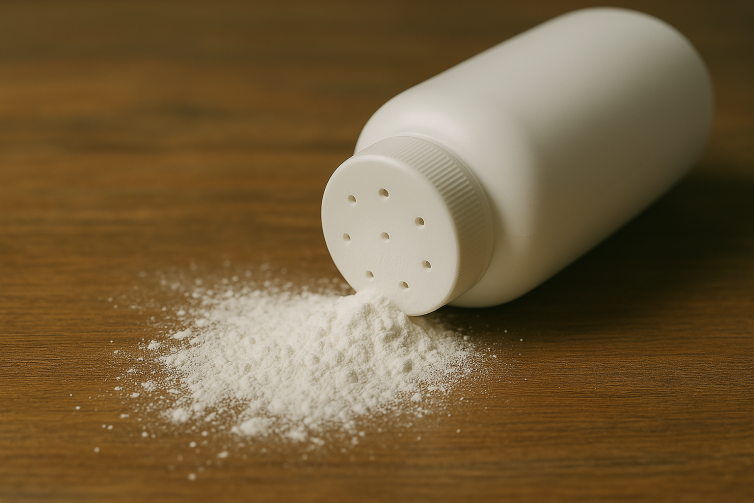Johnson & Johnson removed its talc-based baby powder from the market May 19, 2020, after the FDA announced asbestos was found in the product.
You grew up using baby powder and talcum powder products. When you had a baby you used Johnson & Johnson’s Baby Powder because it prevented rashes, your mom used it on you, and most of your friends were using it on their babies. What you and many other women didn’t know is that executives at Johnson & Johnson supposedly knew as early as the 1970’s that talcum powder found in their baby powder may be contaminated with asbestos posing a serious health threat to those who use it.
Hundreds of women have been using Johnson & Johnson’s Shower to Shower and baby powder for years and have been diagnosed with cancer allegedly in connection to these products. Many class-action lawsuits and claims have been filed against Johnson & Johnson, and billions of dollars have already been awarded.
Talcum powder is made of talc, a soft mineral found in open-pit mines. Talcum powder is used in many beauty and hygiene products, including Johnson & Johnson’s Baby Powder and Shower to Shower. Talcum powder is used in these products because it prevents rashes, softens skin, and absorbs moisture.
Asbestos is a natural mineral made of soft and flexible fibrous material that can break down into microscopic particles. Asbestos is a known carcinogen that is highly toxic. Studies have found that exposure to asbestos can cause cancer.
Research has found that exposure to asbestos causes various forms of cancer, including those below.
- Ovarian cancer
- Lung Cancer
- Mesothelioma
- Laryngeal cancer
Studies have found that baby powder containing talc tainted with asbestos may cause cancer in those who use it. Executives at Johnson & Johnson have denied their baby powder product contained asbestos, but in 2019 the Food and Drug Administration (FDA) found asbestos in their product. Shortly after this announcement by the FDA, Johnson & Johnson issued a recall on their baby powder product.
Johnson & Johnson has faced more than 16,000 lawsuits alleging their baby powder product caused ovarian cancer, endometrial cancer, and mesothelioma.
Johnson & Johnson has already paid more than $2 billion in settlements and verdicts. This is just the tipping point, though, and there will likely be potentially larger settlements to come for those who have used Johnson & Johnson products with talcum powder and have been diagnosed with specific types of cancer.
Women have been using products like Shower to Shower and baby powder for genital hygiene for years, unaware of the risks. Research has found that women who use talc-based products in the genital area for hygiene regularly are at a higher risk of ovarian cancer as well as other forms of cancer.
Many medical experts warn consumers against using talcum powder because of potential health risks. Talcum powder can be found in the following types of products (read the label to make sure the products you use are free of talc).
- Body powders
- Medicated powders
- Perfumed powders
- Baby powders
There are many powders and creams on the market that are saf
Trust our product liability attorneys to provide diligence when providing legal representation in your defective product case. If you have been hurt after using a defective product, our personal injury attorneys are here to help – so contact Mike Hostilo Law Firm today to schedule your free consultation!
You can find us serving product liability victims in the following areas:
GEORGIA LAWYERS
(Park of Commerce) Savannah, GA
SOUTH CAROLINA LAWYERS
ALABAMA LAWYERS
More Product Liability Blogs:
Cancer Risks Connected to Zantac | What is Zantac?
AFFF Firefighting Foam Cancer Risk | Firefighting Foam Lawsuit
More Helpful Personal Injury Blogs:
6 Ways to Stay Safe this Summer
11 Examples of How Business Owners Are Responsible for Your Safety
How to File a Personal Injury Lawsuit on Behalf of Another Person
Can Relatives Recover Money for Deceased in A Wrongful Death Lawsuit?
Can Social Media Affect a Personal Injury Case? Injury Attorney Explains

